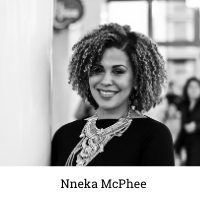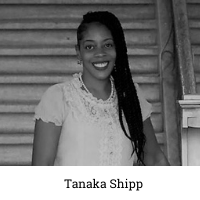
Free Education as a Birthright for Black Coloradans
Guest Blog: Achieving sustainable racial and multi-generational economic equity
Nneka McPhee was raised in Denver and serves as the Vice President of Development Services and Administration for a nationwide nonprofit organization. Tanaka Shipp hails from Byhalia, Mississippi and serves as the Director of Education for Collaborative Healing Initiatives within Communities (CHIC).
From housing to criminal justice, Black Americans are not on equal footing
 The murder of George Floyd this past summer caused a visceral reaction in the hearts of people across the globe and ignited a wave of racial justice protests to demand America reckon with its transgressions against Black people in this country.
The murder of George Floyd this past summer caused a visceral reaction in the hearts of people across the globe and ignited a wave of racial justice protests to demand America reckon with its transgressions against Black people in this country.
For the first time in history, there was widespread acknowledgment that America’s most foundational institutions, from housing and employment, to healthcare and criminal justice, systemically caused and uphold socio-economic disparities among Black Americans and their white counterparts.
America’s education system should be one of our great equalizers

America’s education system, which should be one of our greatest equalizers, might be the most egregious of these examples. In urban communities across America, statistics reveal startling achievement gaps for Black students, who often perform below standards in school readiness, literacy, math, and other determining factors for success. These inequities can be directly traced to federally sponsored discriminatory policies, such as redlining, that intentionally restricted Black people to underfunded schools and subpar academic standards. Even the GI Bill, which was enacted in 1944 to spur economic security, overtly discouraged them from pursuing a postsecondary education. The alarming trend continues to this day, with Blacks representing only 7% of college Freshman, despite making up 15% of the college-age population.
In response to this ongoing challenge, and on the heels of this summer’s rallying cry, the Sisterhood of Philanthropists Impacting Needs (SPIN) and Collaborative Healing Initiatives within Communities (CHIC) began to explore a Free Lifetime Education Initiative for Black Coloradans as a means for achieving sustainable racial and multi-generational economic equity in the state.
The premise for this initiative is a strong belief that Black Americans, whose unpaid labor formed the basis for all wealth and power in this country, are owed the opportunity and the resources to build wealth and power for themselves. This initiative would also hold America accountable to its unfulfilled promises to Black communities as well as to the ideals upon which this country was founded.
An initiative to guarantee free education to Black Coloradans
The Free Lifetime Education Initiative would guarantee all Black Coloradans and their families access to state-funded preschool programs and would supplement existing financial aid programs to ensure that qualifying individuals could pursue a higher education or trade certification at no cost to them.
As part of the initiative, SPIN and CHIC are in the process of raising $60,000 to conduct a comprehensive six-month feasibility study. The study will help inform the number of eligible families, determine short and long-term costs and identify possible financing strategies. Currently, 15 states have similar “promise” initiatives but this particular one is designed to take it a step further, from a promise to a guarantee, and to set a national model for leveling the playing field in education.
True equity is never a zero-sum game, but instead an opportunity for ‘all boats to rise with the tide.’ Imagine the creativity, innovation, talent, and social capital that would benefit our greater society if Black Americans were better positioned to realize their full potential.
More information is coming soon about the Free Lifetime Education Initiative and the feasibility study. Please visit www.chicdenver.org for updates.
The Women’s Foundation of Colorado is a nonpartisan organization. The opinions of guest bloggers are their own and do not necessarily reflect the opinions or positions of The Foundation.

